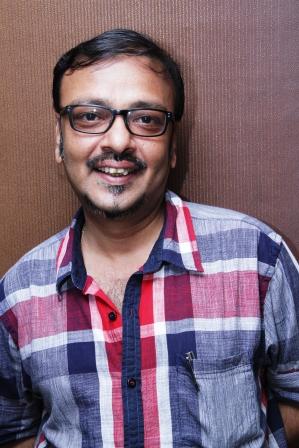 The Doctors, God save their ilk, are a busy lot. Between doing the rounds in the Hospitals and Nursing Homes they are attached to and conducting the private practices, they hardly have a social life worth talking about. Family and friends are often mere interludes – lucid intervals, if you may, in the endless (and often maddening) rush of patients. To expect them to keep themselves abreast of the latest medical trends and be in tune with the advancements of science, at least even in their respective domains, is nothing less than sacrilege. As a matter of fact, many doctors use the interactions they are almost forced to have with the Medical Representatives of pharmaceutical and other suppliers to catch up with the latest, despite being well aware about the obvious downsides of such a course.
The Doctors, God save their ilk, are a busy lot. Between doing the rounds in the Hospitals and Nursing Homes they are attached to and conducting the private practices, they hardly have a social life worth talking about. Family and friends are often mere interludes – lucid intervals, if you may, in the endless (and often maddening) rush of patients. To expect them to keep themselves abreast of the latest medical trends and be in tune with the advancements of science, at least even in their respective domains, is nothing less than sacrilege. As a matter of fact, many doctors use the interactions they are almost forced to have with the Medical Representatives of pharmaceutical and other suppliers to catch up with the latest, despite being well aware about the obvious downsides of such a course.
And it is here that Social Media is increasingly playing a stellar role. For one, like everyone else, the Doctors too have been bitten by the Bug and thankfully, they are not restricting themselves to selfies from the operation theatres. The dissemination of research findings for example, this I say in full knowledge of the fact that they are still overwhelmingly restricted to the print format, is circulating with greater frequencies between Doctors who are embracing the net to keep themselves abreast with important happenings from around the medical world. Twitter conversations that grow around specific hashtags and online patient communities for myriad ailments or concerns are increasingly engaging concerned physicians. Needless to say, such discourses in the public space is also doing a world of good to the patients apart from helping knowledge find its natural watermark.
And, all this is well beyond the one to one interactions between the patient and the Doctors that have been made possible by the increasing use of technology in general and the social media in particular. It will also be pertinent to point out the emergence of a million APPs that have come into play specifically targeting issues and concerns about healthcare, which too have demolished the walls that open existed between those needing and those administering medication.
Twitter is also emerging as the preferred platform for physicians because of its brevity and to the no-nonsense format which is also borne out by the fact that major medical conferences are now stalked mostly by their meeting specific hashtags. And, in the context, we are not even considering the steady increase in the profiles of those engaged in the medical profession in Linkedin.
This shift from the print to the social space has also impacted the way medical literature is being valued or assessed. Gone are the days of citations which have been replaced by likes and follows and page views. This system as we all know, is remarkable democratic in shifting the grains from the chaff and provides for the free flow of information – both congratulatory and condemning, with their obvious benefits.
If Twitter has breached the boundaries, then Blogs have, and read my lips, will continue to provide physicians with the voice that traditional media never gave them. There are millions of people out there who want to hear them and there are the Doctors who want to share their concerns, outside the hallowed halls of conferences (where they could speak only before peers) and their chambers (where they could speak to only a lucky few) – a dichotomy that is being addressed by the blogs. And here too, the opportunity for everyone to take part in the conversation is what is really ensuring that the ripple grows up to become the tsunami that it is destined to be.
Health Insurance entities, pharmaceutical companies, governmental bodies, medical associations, patient welfare societies … everybody is jumping into the Social Media fray, which is, again needless to say, a good thing that has happened to the medical practice in a long, long time. As a matter of fact, as more conversations take place in real time around a specific medical term, the more knowledge will be dissipated leading to more information for the laypersons to access and make their decisions on.
However, like every good thing, Social Media too comes with riders and caveats. There are concerns about ethicality, privacy and professionalism. There is also the very real fear that Social Media can be used as a tool for propaganda and the dissemination of misinformation or even the curation of content. Social Media familiarity, to coin a term, may also breed contempt. That is perhaps reason why guidelines have already been devised by clinicians from the British Journal of Urology International and the European Association of Urology, for example, recommending ways to use social media responsibly.
The piece was written for the Express Health Guide 2016.
